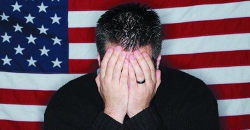Prayer Censorship Case Hits Appellate Court
 The U.S. Court of Appeals for the 4th Circuit is busy these days. After hearing arguments for and against Obamacare on Tuesday, the appellate court will decide whether the American Civil Liberties Union (ACLU) and Americans United for Separation of Church and State (AU) can force censorship of prayer before public bodies on Thursday.
The U.S. Court of Appeals for the 4th Circuit is busy these days. After hearing arguments for and against Obamacare on Tuesday, the appellate court will decide whether the American Civil Liberties Union (ACLU) and Americans United for Separation of Church and State (AU) can force censorship of prayer before public bodies on Thursday.
The case dates back to March 2007. That’s when ACLU and AU attorneys sued the Forsyth County board in federal court on behalf of three individuals because it “does not have a policy which discourages or prohibits those whom [the board] has invited to deliver prayers from including references to Jesus Christ, or any other sectarian deity, as part of their prayers.”
“In other words, the ACLU and AU are advocating censorship,” says Alliance Defense Fund (ADF) Senior Legal Counsel Brett Harvey. “They do not wish to allow private citizens invited by the board to express themselves consistent with the dictates of their own conscience.”
Forsythe County appealed after a district court barred the commissioners last year from opening public meetings with prayer that may mention a particular deity. ADF filed the appeal on the board’s behalf in a lawsuit filed in 2007 by the ACLU and AU. County residents overwhelmingly support the board’s prayer policy.
“In a country whose founders opened public meetings with prayer, its public officials should be able to do the same. Nor should they be forced to whitewash the prayers of those invited to offer them simply because secularist groups don’t like people praying according to their own conscience,” says ADF Allied Attorney Mike Johnson. “We are confident that the 4th Circuit will acknowledge our nation’s heritage of prayer above the unfounded arguments to eradicate it.”
In January 2010, a federal court issued an order agreeing with a federal magistrate’s recommendation to rule against Forsyth County, despite arguments made against the recommendation filed by ADF attorneys and its allies. After a public meeting the following month that attracted nearly 1,000 county residents in support of continuing the case, the board of commissioners voted in favor of filing the appeal with the 4th Circuit.




























































